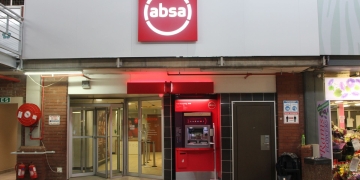
Stanbic Properties Uganda Limited, a subsidiary of Stanbic Uganda Holdings Limited, has released a new real estate industry study covering the period ending December 2021.
The study reports a significant increase in condominiums sold in Kampala and Wakiso. According to the researches, the increasing purchasing power of the working-class who dwell in these neighbourhoods is driving the uptake of condos.
Traditionally, the official retail industry has been focused on Kampala’s central business district and a few high-end residential neighbourhoods in the outskirts, especially Naalya, Lubowa, and Entebbe.
However, during the study researchers found both the burgeoning retail sector and high-end residential homes are undergoing a fundamental transition and shifting to Wakiso district.
Mr Abbas Rasheed, the general manager of Universal Multipurpose Enterprises, a firm that specialises in residential housing in the form of condominium flats, believes that everyone will soon extensively embrace condominiums due to their affordability in terms of payment alternatives.
“We build for Africa so we understand the market,” stated Rasheed, whose company received the East African Property Awards 2020-2021 for Best Architectural Multiple Residence and Best High-rise Development in Uganda.
He added: “Condos appeal to families with a broad spectrum of income levels, living or working in or around Kampala and Wakiso as well as Ugandans in the diaspora.”
He says that his company sees Uganda’s potential as one of Africa’s premier business, leisure, and fashion centres, and is capitalising on opportunities leading to rapidly-growing international markets.
“We are implementing our strategy to make our high-growth businesses independent profit centres and will continue to build smart cities of the future,” he adds.
Ugandans can now invest in condominiums rather than residences far from the Central Business District.
“I think condos are the future because land in cities is getting expensive. We have a traditional view of every Ugandan wanting to own a house and garden. But you can only expand outwards, so people are starting to build far out of town. It takes people two hours to get home and two hours to return. That is time you can use for developing your business,” business mogul Sudhir Ruparelia said in a recent event of E-bomba ya business.
Aside from accessibility, he continued, condominiums provide additional benefits such as security and management.
“Condominiums are also secure. You are not exposed—anybody who wants to come and rob you will think twice. Insecurity in the suburbs is a big issue. That will push people into condos,” he added.
The Ugandan government passed the Condominium Property Regulations in 2002 to regulate condominiums. According to Knight Frank, Kampala has the most expensive housing in Uganda, a significant estate property and consultancy business.
In Kampala, the typical two-bedroom apartment costs UGX 170m, while the average three-bedroom costs UGX.500m.
Ugandans continue to adore them nearly 20 years later, given Uganda’s housing scarcity.
Condos might be the answer to Uganda’s impending housing crisis, considering the country has the world’s fastest-growing population at 3.5 per cent per year.
Experts predict an eight-million-unit housing gap in 10 years, based on the current development pace of 60,000 units per year and also advocate for increased public awareness of the benefits of investing in land-saving condominium buildings.










